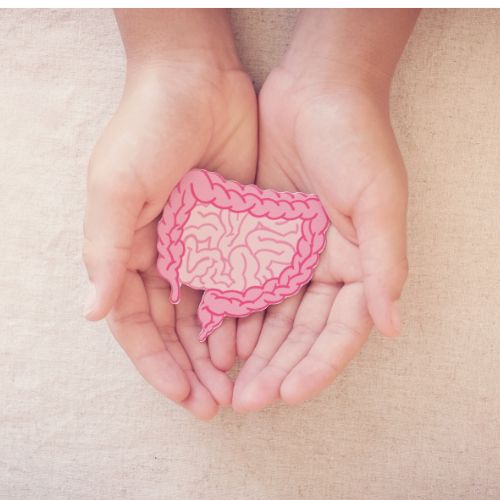What is leaky gut?
A leaky gut is pretty much what it sounds like – there are ‘leaks’ in your gut lining which allow unwanted particles to pass through from your small intestine into your bloodstream.
The small intestine is where most of the nutrients from your food is absorbed, to be passed to areas of the body where it is needed. One of the main jobs of the small intestine lining (mucosa) is to prevent absorption of unwanted and damaging substances from the outside environment. This protective function of how much the intestinal lining allows to pass through is called ‘intestinal permeability’. Intestinal permeability is also known as ‘leaky gut’ as it allows unwanted substances to ‘leak’ through the small gaps (known as tight junctions) in the intestinal lining, allowing them to enter the circulatory system, and create adverse symptoms around the body.
Discover our full range of zeolite clinoptilolite products or check out even more educational articles and videos.
What causes a leaky gut?
Clinically speaking, there isn't yet a definitive root cause of leaky gut. In fact, there is still some debate as to whether it is best described as a condition or a symptom, however what we do know is that it is linked to a plethora of chronic conditions and symptoms.
The tight junctions (the gaps between the cells) of the intestinal lining are modulated by zonulin, a protein which has a double (and opposite) function! Its job is to allow some substances (the good stuff such as the nutrients from food) to pass through whilst at the same time blocking the passage of some other substances (the bad stuff such as pathogens, unwanted particles from food etc.).
You can think of the tight junctions as shoe laces. When functioning properly, the right amount of zonulin is produced and modulates the tight junctions so they are uniform and tight, ensuring the gaps aren’t very large. After a meal, they loosen up just enough to allow a small gap for nutrients, and inevitably some gut microbes also pass through. This will naturally cause some short-lived inflammation as the immune system kicks into action (histamine is released which causes the inflammation) when it encounters these gut microbes, but that is a normal part of the process and won’t adversely affect healthy individuals.
With this said, in some individuals, the tight junctions may loosen for longer than required, which allows the passage of larger quantities of gut microbes, large food particles and unwanted substances which then stimulate the immune system for longer, releasing even more histamine and causing even more inflammation. This immune response results in prolonged inflammation which causes other symptoms around the body, while also aggravating the intestinal lining.
Genetics and age are factors which affect the loosening of these tight junctions (the zonulin pathway) but so are lifestyle factors such as:
- Diet (high in sugar and saturated fats) which alter the gut microbiome
- Stress
- Alcohol
- Infections such as pylori and SIBO (small intestinal bacterial overgrowth)
- Medication (painkillers)
What are the signs and symptoms of a leaky gut?
When the protective function of the gut lining is compromised and your leaky gut allows pathogens to pass into circulation around the body, this puts the immune system on high alert and you can experience inflammation all around the body as well as chronic inflammation of the digestive tract. This can manifest in a variety of symptoms throughout the digestive tract and on the skin. Although there could be other reasons for the following, some of these symptoms may indicate a leaky gut:
- Digestive issues such as bloating, diarrhoea, constipation and excessive gas
- IBS (irritable bowel syndrome) symptoms if associated with IBS (abdominal pain, cramping, mucous in stool)
- IBD (inflammatory bowel disease) symptoms if associated with IBD (abdominal pain, severe diarrhoea, weight loss, fatigue, fever, bloody stools)
- Coeliac disease symptoms if associated with Coeliac (abdominal pain, diarrhoea/constipation, fatigue, nausea, vomiting, bloating, gas, weight loss)
- Skin issues such as acne, eczema, rosacea
- Food sensitivities
- Joint pain
- Autoimmune condition symptoms (fibromyalgia, Crohn’s, Coeliac)
- Fatigue & Confusion
- Headaches
Are there treatments for leaky gut?
There are no treatments for leaky gut as such, but doctors will treat you for what they diagnose the underlying condition to be. So, you may get treated for IBS (treatments such as antibiotics, pain relief, IBS medication), IBD (treatments include anti-inflammatory medication, immune system suppressants, antibiotics, pain relief) or Coeliac (gluten free diet) for example.
Preventative measures and natural treatments can include reducing stress, avoiding foods which exacerbate the situation, as well as foods which are high in histamine. Instead, having a healthy diet with foods that increase gut microbiome diversity and reduce inflammation is a great choice. Reducing stress and other environmental factors which can cause inflammation of the digestive tract would also help.
Foods to avoid with leaky gut
One factor which can compromise the effectiveness of the intestinal lining is a lack of commensal bacteria, so a varied diet which increases the diversity of the gut microbiome is highly recommended, as is avoiding inflammatory foods. Examples of foods to avoid with a leaky gut are:
- Processed foods
- High fat foods
- High sugar foods
- Beverages (alcohol, carbonated drinks, sugary drinks)
- Gluten grains (wheat, barley, rye)
- Wheat based products (bread, pasta, cereals, couscous)
- Dairy products
- Refined carbohydrates
- Artificial sweeteners
Call us on 02476363873 or email us at info@nhinnovations.com to discuss your questions with a member of our clinical team.
Enjoyed this guide? Now read...
Histamine: what is it and why is it important?
What is histamine intolerance?
Everything you need to know about high histamine foods


